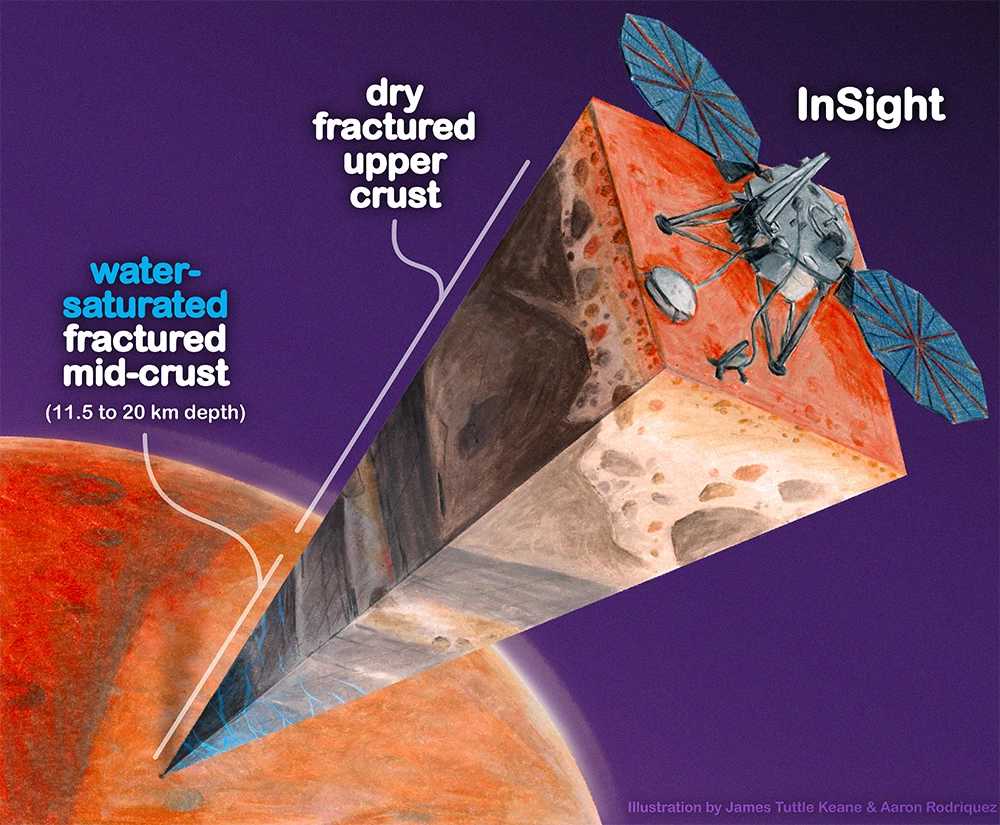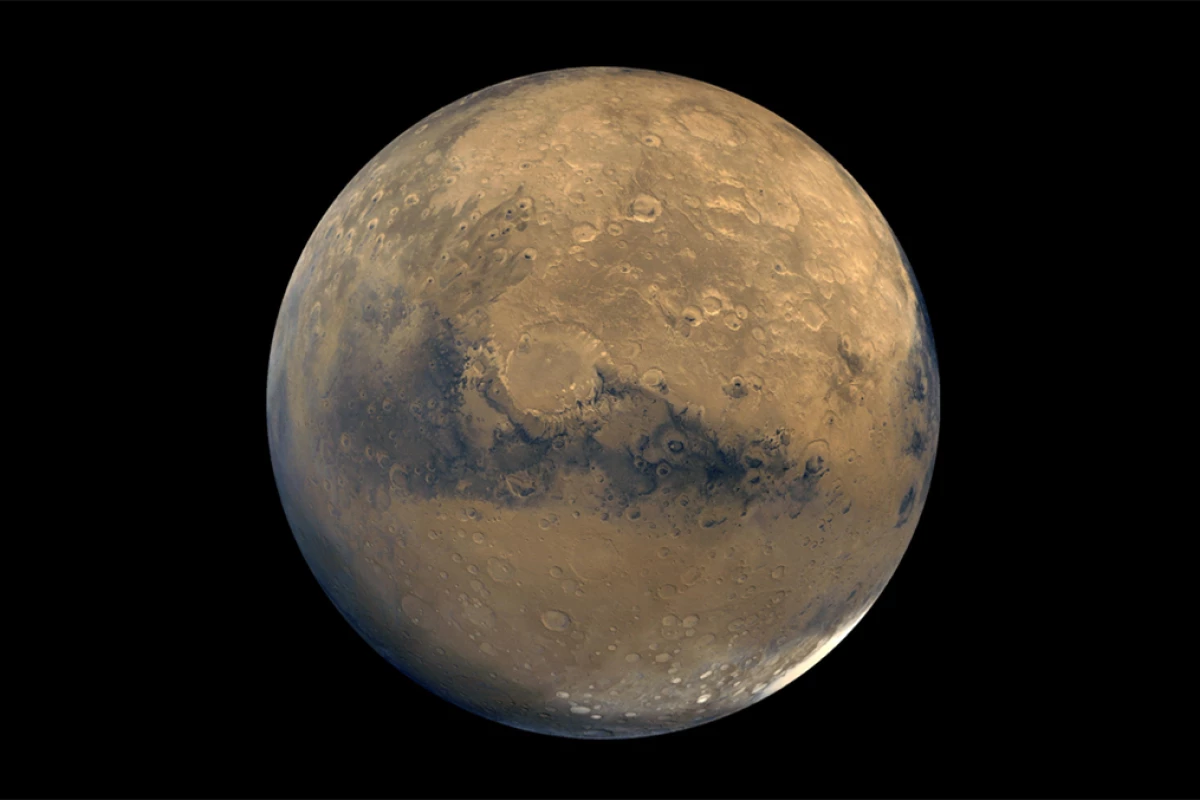The good news is that there's a vast ocean of water under the surface of Mars – enough to cover the entire planet to a depth of a mile (1.6 km). The bad news is that this repository is so deep and unreachable that it might as well be in another galaxy.
Mars is one of the most frustrating planets humanity has ever encountered. For the past two centuries it's been a constant pendulum swing back and forth as evidence is found that life could exist there or that there's plenty of water for future Earth colonies only to have hopes dashed away again and again by more data.
A new study by a team led by UC Berkeley combined hope and disappointment in the same paper published in the Proceedings of the National Academy of Sciences.
By using seismic data gathered by NASA's Insight lander, the scientists were able to analyze it using computer rock physics models like those used to map aquifers and oil fields on Earth. What they found was that the readings collected by Insight are best explained by the presence under the surface of the Red Planet of a deep layer of fractured igneous rock saturated with liquid water.

There's a whole ocean's worth of water locked in that rock, but the problem is that it's inaccessible. According to the team, the layer is 11.5 to 20 km (7 to 13 miles) beneath the surface, which means reaching that giant aquifer, much less tapping it, would be a major engineering challenge on Earth, to say the very least, let alone in the harsh environment of Mars.
However, there is some good news from this. For one thing, the presence of all that water means that there's another location where, theoretically, microbial life just might exist. Another plus is that it helps to explain the geological history of Mars.
Three billion years ago, Mars was a watery world with an ocean dominating one of its hemispheres. Over the millennia, the atmosphere of the planet dwindled due to the lack of a magnetic field to protect it from the solar winds. As the atmosphere went, most of the water evaporated into space, leaving only the ice caps and some permafrost deposits.
At least, that's the accepted theory. If the Berkeley analysis holds up, it could be that a large fraction of those ancient seas seeped down through cracks in the rocks to settle in the depths.
"Understanding the Martian water cycle is critical for understanding the evolution of the climate, surface and interior," said Vashan Wright, a former UC Berkeley postdoctoral fellow. "A useful starting point is to identify where water is and how much is there."
Source: UC Berkeley





